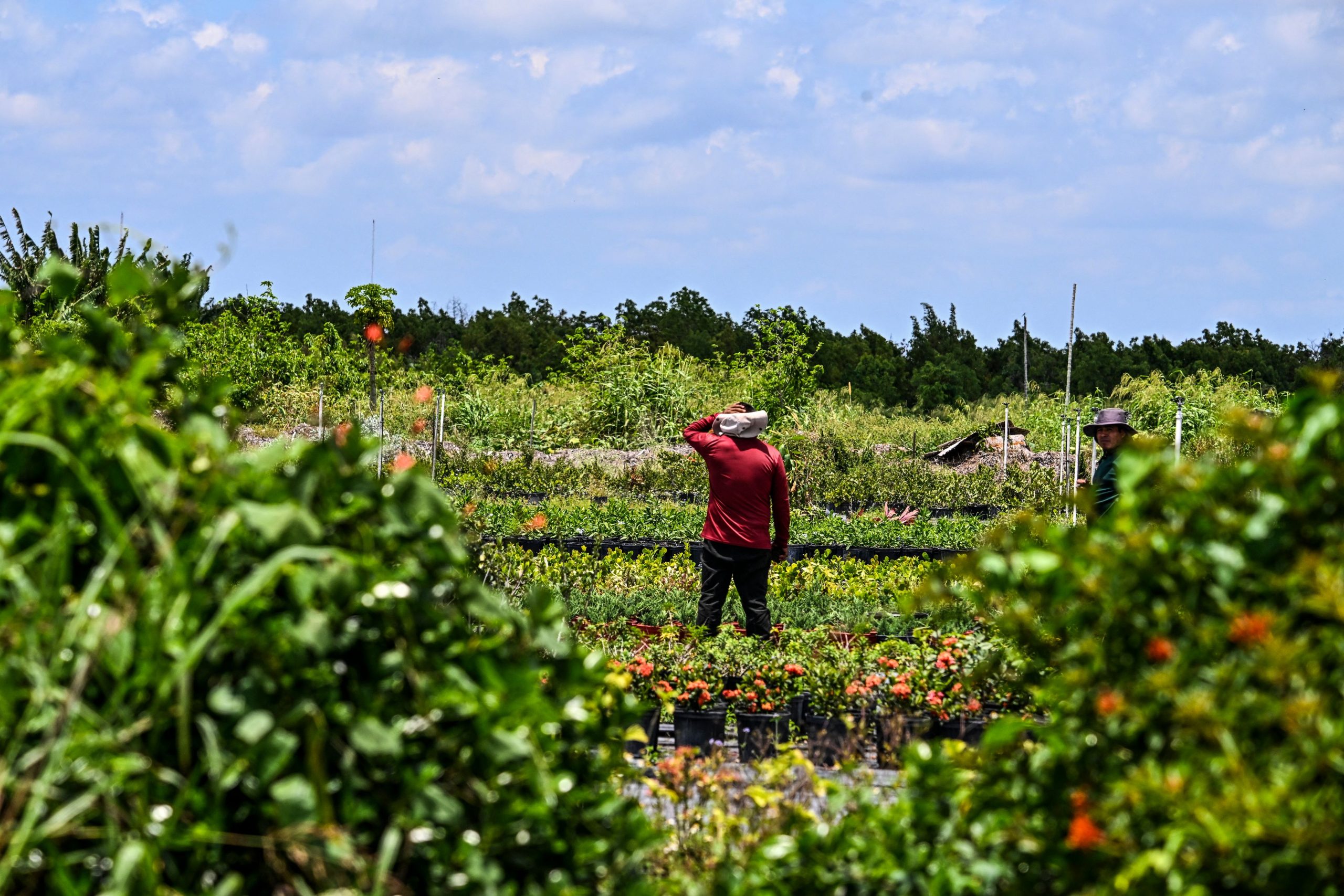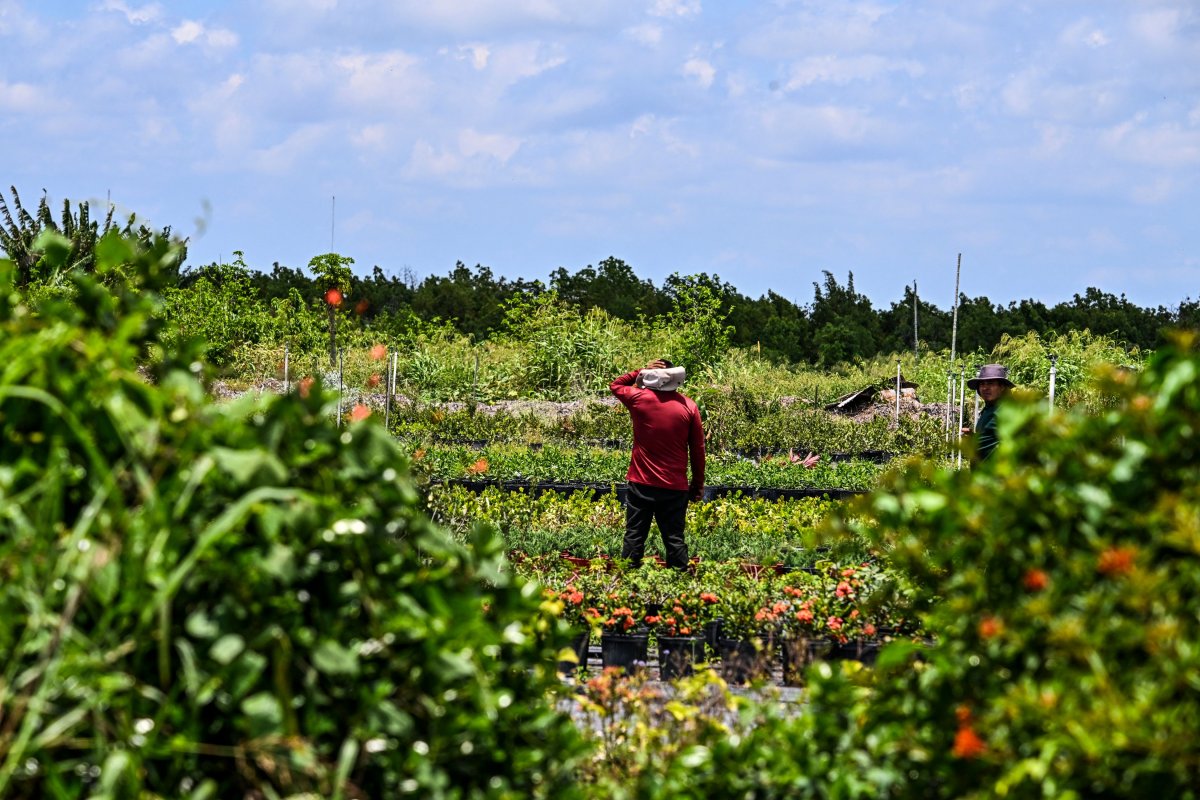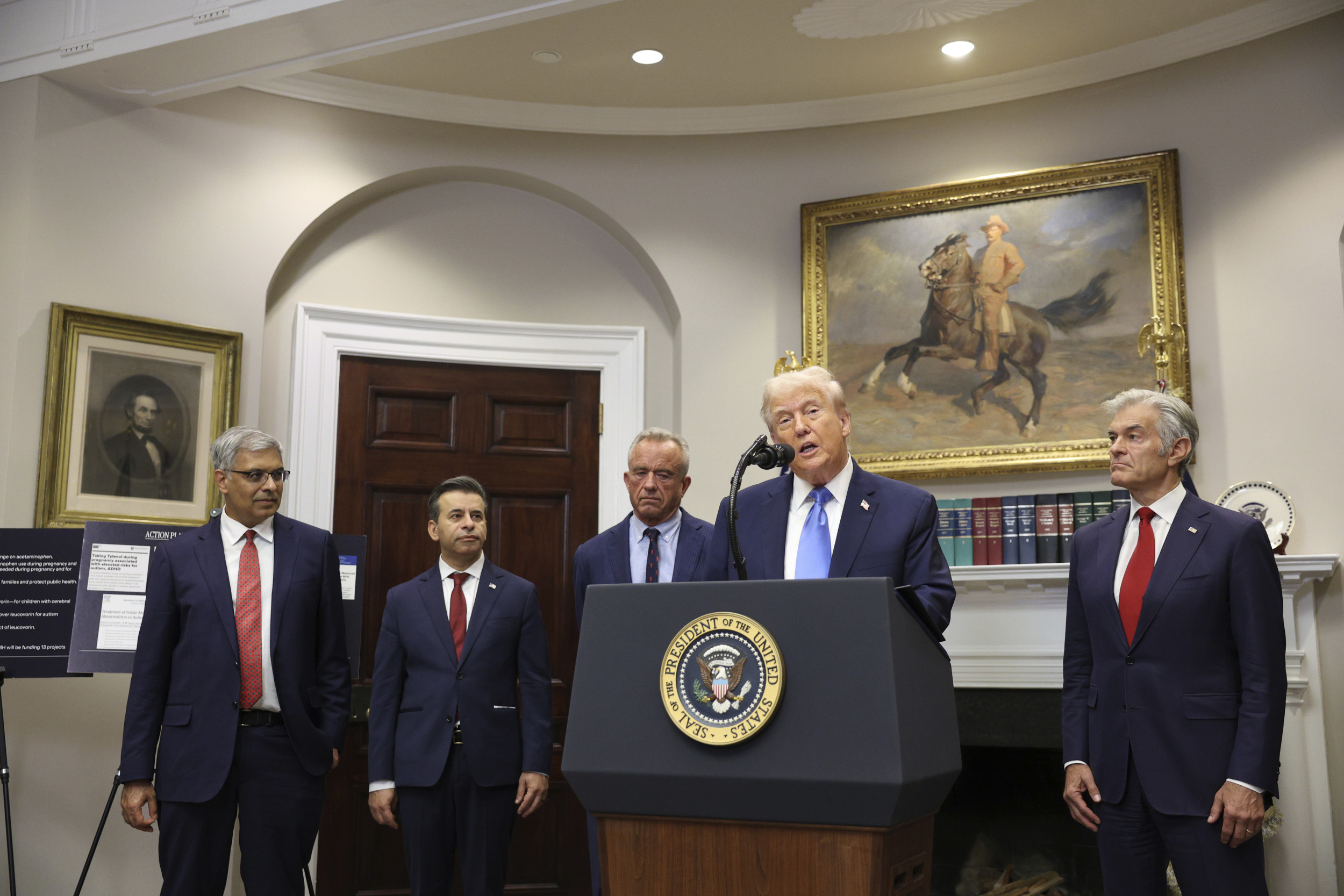
More highly skilled legal immigrants in the United States would mean stronger economic growth, according to a new study.
Why It Matters
President Donald Trump has vowed to carry out the largest deportation program in American history, ramping up removals of migrants without legal status and moving to revoke the legal protections of others.
Concerns have been raised over the economic fallout of the administration’s hard-line immigration policies, with critics arguing that large-scale deportations could severely cripple the U.S. economy.

CHANDAN KHANNA/AFP via Getty Images
What To Know
On Thursday, the Penn Wharton Budget Model released a report suggesting that if the U.S. increased the number of visas for higher-skilled workers and reduced the number for lower-skilled workers, it would boost the economy.
Specifically, by 2054, GDP and consumption would both rise by 0.4 percent with more high-skilled immigrants. If the immigrants are in STEM fields, GDP would increase by 0.7 percent and consumption by 0.6 percent. The study focused on changing the types of visas without increasing the overall number issued.
According to the findings, reallocating more visas to college-educated immigrants and those in STEM fields would result in faster economic growth, lower federal debt and higher wages across all income groups.
Amid the administration’s push for mass deportations, the American Business Immigration Coalition has estimated that agricultural output would fall between $30 billion and $60 billion with the removal of millions of undocumented workers.
Business leaders and a bipartisan coalition of lawmakers have come together on Capitol Hill to urge the president to address labor shortages, implement fair immigration reform and provide economic opportunities for law-abiding immigrants contributing to the nation’s growth.
What People Are Saying
Kent Smetters, a professor at the University of Pennsylvania’s Wharton School, told Axios: “A small change in immigration policy that focuses more on skill—less on family structure—actually has a pretty big impact on the economy.”
Rebecca Shi, the CEO of the American Business Immigration Coalition, said: “We are at a turning point. Right now, there is a 1.7 million worker shortage in the U.S. It’s a direct threat to our economy, our industries and the prosperity of hardworking families. It’s time to modernize our system so that law-abiding, tax-paying immigrants, many of whom have been here for decades—like our dreamers and farm workers—can obtain legal work permits and green cards to keep building America’s future.”
Representative Dan Newhouse, a Republican from Washington, said on Wednesday: “Immigrant workers are the most important workers that we have. They truly are because without them, from my perspective, we would not have an agricultural industry. … We depend on immigrant workers to make sure that all of you have food on the table when you sit down to eat with your families.”
He added: “One thing that we have to do that will help keep those prices from continuing to rise is ensure that American agriculture has a legal workforce.”
What Happens Next
The Trump administration’s deportation program is expected to continue, and its effects on the economy may come into sharper focus over the next few months.




